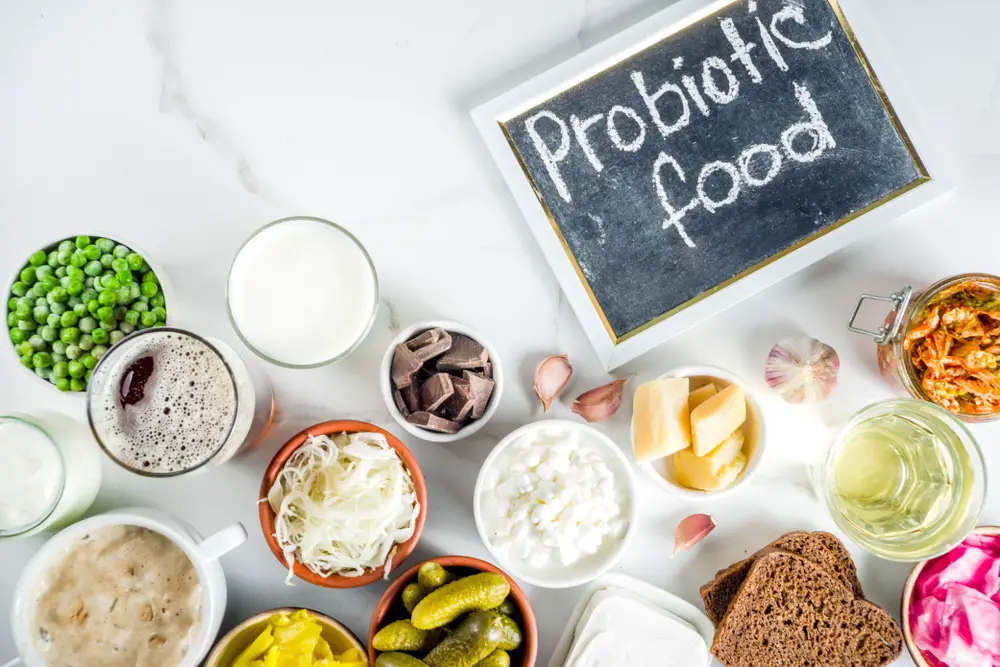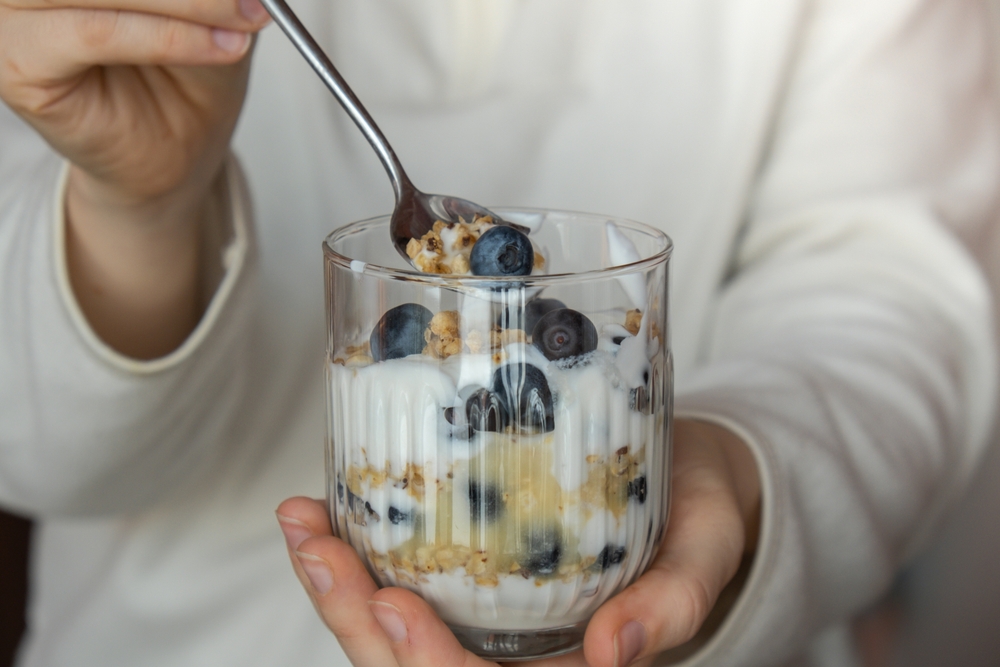From the tiniest bacteria in your gut to the most mysterious viruses lurking in your body, the microscopic world inside you is more influential than you might think. These microbes, which outnumber your human cells, can play a pivotal role in determining your longevity and overall health. As you embark on this journey through the unseen universe within, consider how these tiny organisms might hold the key to a longer, healthier life.
1. Lactobacillus Reuteri

Lactobacillus reuteri is a friendly bacterium often found in your gut, known for its powerful probiotic properties. It helps maintain a healthy digestive system by balancing your intestinal flora, and it may even boost your mood and immune system. Recent research from the Massachusetts Institute of Technology suggests that this microbe could also play a role in longevity by promoting the production of oxytocin, the so-called “love hormone.” Regular consumption of foods rich in L. reuteri or supplements could enhance your well-being in ways you didn’t know possible. It seems that keeping your gut happy with this bacterium might just be your ticket to a longer life.
Studies have shown that L. reuteri can reduce inflammation, a common culprit in many age-related diseases. This tiny helper works diligently to keep your intestines in check, reducing the risk of conditions like irritable bowel syndrome and other inflammatory issues. As inflammation is linked to premature aging, incorporating this bacterium into your diet could be a simple yet effective strategy for longevity. You might consider adding more fermented foods like yogurt or kefir to your meals. In the bustling ecosystem of your gut, L. reuteri is truly a star player.
2. Bacteroides Fragilis

Bacteroides fragilis is a species that’s often misunderstood but is essential to your gut health. It plays a crucial role in breaking down complex molecules in your diet, making nutrients more accessible to your body. This bacterium also helps keep your immune system balanced, preventing it from overreacting to harmless stimuli. Despite its slightly notorious reputation, B. fragilis has a redeeming quality in promoting a harmonious environment in your gut. By maintaining this balance, it supports not just digestive health, but also your overall resilience and vitality.
Striking the right balance of B. fragilis in your gut could be key to avoiding chronic diseases and promoting longevity. Too much or too little of this microbe might lead to health issues, but just the right amount could protect against inflammation and infection. It’s a testament to the delicate dance occurring within your digestive tract every day. Consuming a fiber-rich diet may help nurture this beneficial microbe in your system. Ultimately, a harmonious relationship with B. fragilis could be part of your strategy for a long and healthy life.
3. Akkermansia Muciniphila

Akkermansia muciniphila is a relatively recent discovery that’s been making waves in the world of gut health research. It’s known for its ability to maintain the mucosal layer of your intestines, which is crucial for a healthy gut barrier. According to a study published in Nature Medicine, A. muciniphila has been linked to improved metabolic health, reduced inflammation, and even protection against certain diseases. This bacterium might be a secret weapon in your quest for longevity, promoting a healthier metabolism and supporting weight management. Including foods that encourage its growth, like prebiotics, could help you reap the benefits of this promising microbe.
The presence of A. muciniphila in your gut is often associated with a lower risk of obesity and related disorders, such as diabetes. It’s thought to enhance your body’s response to insulin, helping to keep blood sugar levels stable. This could be vital in reducing the risk of metabolic diseases that often come with aging. Supporting this microbe’s growth through dietary choices may bolster your defenses against these conditions. By fostering A. muciniphila, you’re investing in a healthier, potentially longer life.
4. Bifidobacterium Longum

Bifidobacterium longum is a probiotic powerhouse that brings numerous health benefits to the table. It’s primarily known for its ability to improve digestion and boost immunity, making it a staple in the world of probiotics. As a major player in your gut’s ecosystem, B. longum helps break down complex carbohydrates and produce essential vitamins. It’s also been shown to lower inflammation, which is a key factor in aging and chronic diseases. By supporting your gut with B. longum, you could be paving the way for a healthier, more resilient life.
In addition to its digestive benefits, B. longum plays a crucial role in mental health. A healthy gut-brain axis is essential for maintaining mood and cognitive function, particularly as you age. This microbe is believed to influence the production of neurotransmitters, connecting gut health with emotional well-being. Incorporating B. longum-rich foods like fermented dairy into your diet may nurture both your mind and body. As you cultivate a thriving gut flora, you’re not just caring for your physical health but also supporting your mental resilience.
5. Faecalibacterium Prausnitzii

Faecalibacterium prausnitzii is a lesser-known hero of the gut microbiome, with impressive anti-inflammatory properties. This bacterium produces butyrate, a short-chain fatty acid that plays a critical role in maintaining gut health and reducing inflammation. A study published in the journal Gut found that higher levels of F. prausnitzii are associated with reduced inflammation and a lower risk of gastrointestinal diseases. This makes it an important ally in the fight against chronic inflammation, a common issue that accelerates aging. Supporting the growth of this beneficial bacterium could be a smart move for anyone looking to live a healthier, longer life.
Despite its benefits, F. prausnitzii is sensitive to changes in diet and lifestyle. A diet rich in fiber, specifically from fruits, vegetables, and whole grains, can help promote its growth and activity. As you nourish this bacterium, you’re not just supporting your gut health, but also bolstering your immune system. A thriving population of F. prausnitzii in your gut may help reduce the risk of diseases linked to inflammation, like Crohn’s disease and ulcerative colitis. By prioritizing this microbe’s health, you’re investing in a future of vitality and longevity.
6. Saccharomyces Boulardii

Saccharomyces boulardii is a unique probiotic yeast that offers a wide range of gut health benefits. Unlike bacterial probiotics, this yeast can survive the harsh conditions of your digestive tract, reaching your intestines alive. It’s known for its ability to combat diarrhea, especially when caused by antibiotics or infections, by balancing your gut flora. S. boulardii also plays a role in strengthening your intestinal barrier, preventing harmful pathogens from causing damage. Including this resilient microbe in your diet might be an excellent way to bolster your gut health and overall well-being.
In addition to digestive health, S. boulardii may support your immune system, adding another layer of protection against illness. This yeast has been shown to modulate immune responses, helping your body fend off infections more effectively. As you age, maintaining a robust immune system becomes increasingly important for longevity. Consuming S. boulardii through supplements or food sources can help keep your defenses strong. With its resilience and health benefits, S. boulardii is a valuable addition to your wellness routine.
7. Escherichia Coli (Beneficial Strains)

While Escherichia coli often gets a bad rap due to its pathogenic strains, certain beneficial strains play a vital role in your gut health. These good E. coli strains help synthesize essential vitamins, such as vitamin K, and support nutrient absorption. A paper in the Journal of Bacteriology highlights the importance of these strains in maintaining a balanced gut microbiome and preventing harmful bacteria from taking over. By keeping these beneficial strains in check, you can support digestive health and potentially ward off illness. Embracing the positive side of E. coli can contribute to a healthier, longer life.
The beneficial strains of E. coli can also produce bacteriocins, substances that help inhibit the growth of harmful microbes. This action makes them valuable allies in maintaining a balanced gut ecosystem. Supporting these strains through a diet rich in prebiotics and probiotics may enhance their ability to protect your gut. As you nurture the good E. coli, you’re contributing to a defense system that can fend off health threats. Harnessing the power of these often overlooked microbes might just be a key component in your plan for a long and healthy life.
8. Roseburia Hominis

Roseburia hominis is a beneficial bacterium that’s gaining attention for its role in gut health and overall well-being. This microbe is known for producing butyrate, a short-chain fatty acid essential for maintaining a healthy gut lining and reducing inflammation. By supporting the integrity of your intestinal barrier, R. hominis can help prevent leaky gut syndrome and related health issues. A thriving population of this bacterium in your gut is associated with lower levels of inflammation and a reduced risk of chronic diseases. Fostering R. hominis through dietary choices may be an effective way to promote longevity and vitality.
In addition to its anti-inflammatory properties, R. hominis may also play a role in weight management and metabolic health. Studies have linked higher levels of this bacterium to improved insulin sensitivity and a healthier body weight. Supporting R. hominis with a fiber-rich diet may help you harness these potential benefits. As you cultivate a balanced gut microbiome, you’re not just caring for your digestive health but also supporting your overall wellness. With its promising health benefits, R. hominis is a microbe worth nurturing for a longer, healthier life.
9. Helicobacter Pylori (Balanced Presence)

Helicobacter pylori is a bacterium with a notorious reputation, often associated with ulcers and stomach cancer. However, a balanced presence of H. pylori in your gut may actually have some health benefits. It’s thought to play a role in regulating stomach acidity and supporting a diverse gut microbiome. Despite its potential downsides, researchers are exploring how a balanced presence of this bacterium might contribute to a healthy gut environment. Understanding and managing H. pylori’s role in your body could help you maintain a healthier digestive system.
A balanced presence of H. pylori might also play a role in modulating your immune system. Some studies suggest that it may help prevent the overactivity of immune responses, which is linked to autoimmune diseases. This immune-regulating effect could be a double-edged sword, requiring careful management to harness its benefits. As you explore ways to support gut health, considering the complex role of H. pylori may be part of the equation. Striking the right balance of this bacterium could be a step toward a healthier, longer life.
10. Ruminococcus Bromii

Ruminococcus bromii is a starch-loving bacterium that plays a key role in breaking down resistant starches in your diet. This process produces short-chain fatty acids, which are essential for gut health and reducing inflammation. By aiding in the digestion of these complex carbohydrates, R. bromii helps ensure that you reap the nutritional benefits of fiber-rich foods. Supporting this bacterium’s growth through your diet can enhance your gut health and overall wellness. In the quest for longevity, R. bromii’s role in gut health is a crucial piece of the puzzle.
In addition to its digestive benefits, R. bromii may also play a role in promoting a balanced gut microbiome. Its ability to break down resistant starches creates a favorable environment for other beneficial microbes to thrive. This symbiotic relationship within your gut can lead to improved digestion and a stronger immune system. As you focus on nurturing a diverse and balanced gut microbiome, R. bromii is a valuable ally. By embracing the benefits of this bacterium, you’re supporting a healthier, more vibrant life.
11. Prevotella Copri

Prevotella copri is a bacterium that’s becoming increasingly recognized for its role in gut health and metabolic processes. It’s particularly adept at breaking down carbohydrates, making nutrients more accessible to your body. P. copri’s presence in your gut is often linked to a diet rich in fiber and plant-based foods. By supporting this bacterium through dietary choices, you can enhance your gut health and nutrient absorption. As you aim for a longer, healthier life, P. copri is a microbe worth considering in your wellness strategy.
Beyond its digestive benefits, P. copri may also play a role in modulating inflammation and supporting metabolic health. However, its effects can vary depending on diet and other factors, highlighting the importance of a balanced gut environment. By maintaining a diverse microbiome, you can help ensure that P. copri and other beneficial microbes thrive. Embracing a diet that supports this bacterium can lead to improved digestion and overall wellness. With its potential health benefits, P. copri is a key player in the quest for longevity.
12. Clostridium Butyricum

Clostridium butyricum is a spore-forming bacterium that brings a host of benefits to your gut health. It’s particularly well-regarded for its ability to produce butyrate, a short-chain fatty acid that supports a healthy gut lining and reduces inflammation. This bacterium is often found in fermented foods and supplements, making it accessible for those looking to boost their gut health. By promoting the growth of C. butyricum, you can enhance your digestive health and support your body’s natural defenses. In the pursuit of longevity, this microbe offers a valuable contribution to your wellness regimen.
In addition to its butyrate production, C. butyricum is known for its ability to inhibit harmful bacteria and promote a balanced gut microbiome. This balance is crucial for maintaining overall health and preventing disease. By supporting the presence of C. butyricum through your diet, you’re investing in a healthier gut and a more resilient body. As part of a diverse and balanced microbiome, this bacterium plays a vital role in supporting your longevity. Embracing the benefits of C. butyricum is a step toward a healthier, more vibrant life.
13. Methanobrevibacter Smithii

Methanobrevibacter smithii is an archaeon, a unique group of microorganisms distinct from bacteria, that resides in your gut. It’s instrumental in supporting digestion by breaking down complex carbohydrates and aiding in the absorption of nutrients. M. smithii’s presence is often associated with a healthy and efficient gut microbiome. By facilitating the digestion of fiber and other difficult-to-break-down nutrients, it plays a crucial role in your overall digestive health. This microbe’s activity illustrates the complexity and sophistication of your internal ecosystem.
In addition to aiding digestion, M. smithii may also influence your energy balance and weight management. Its ability to optimize nutrient absorption can lead to more effective energy use, supporting your overall metabolism. Maintaining a balanced presence of M. smithii in your gut could contribute to better metabolic health and longevity. As you focus on promoting a diverse and balanced microbiome, M. smithii is an intriguing component of your gut’s lineup. By fostering this microbe, you’re supporting a healthier, potentially longer life.
